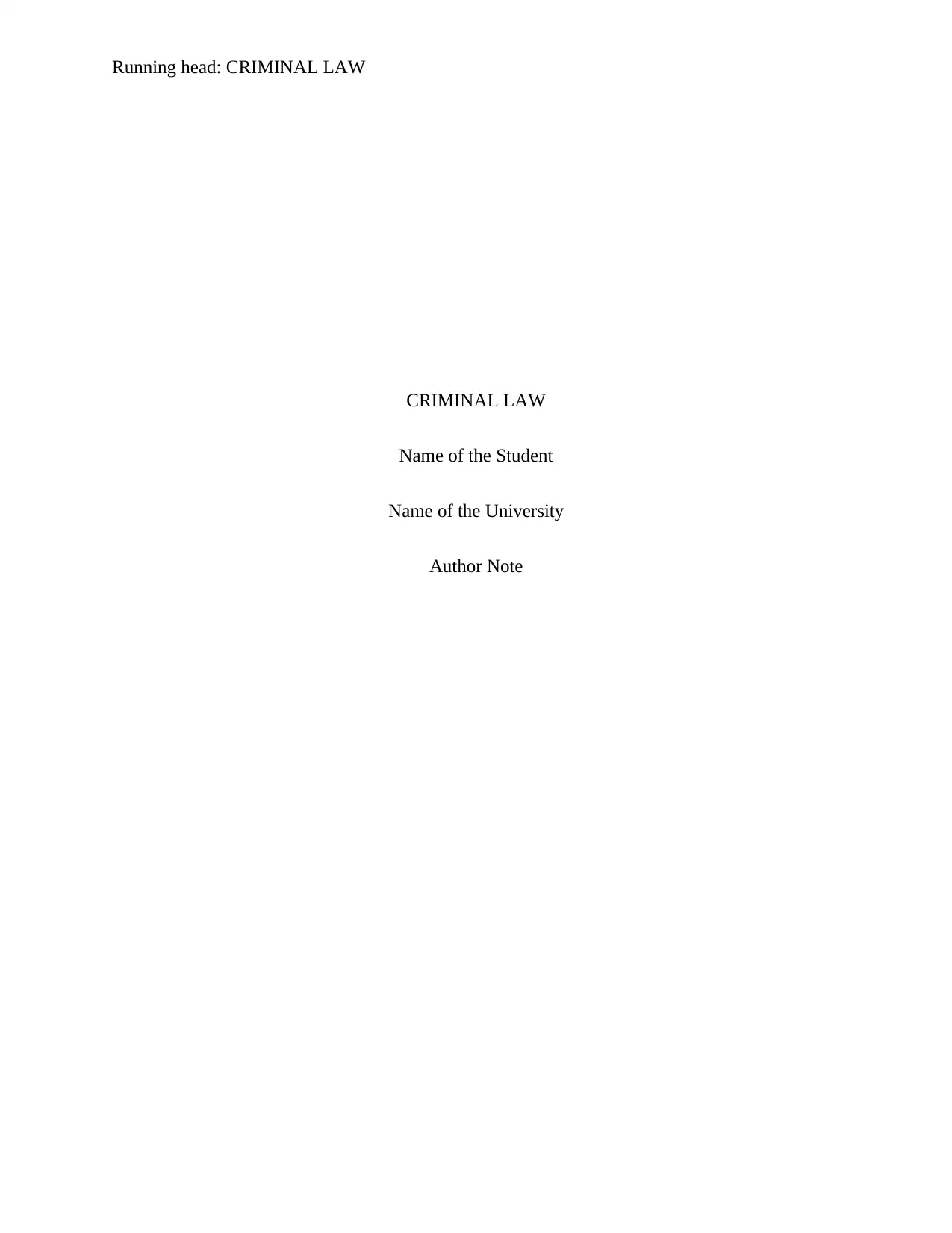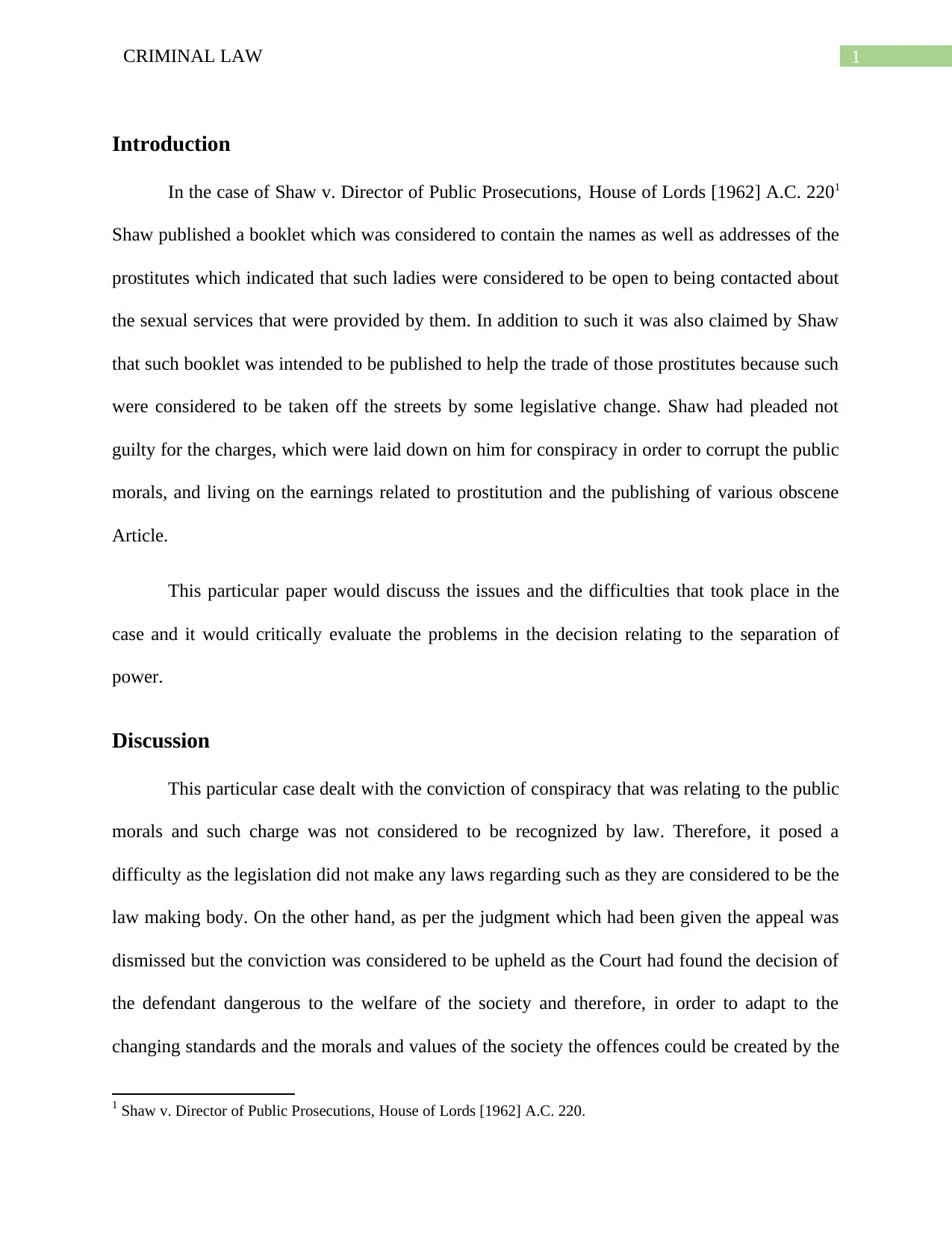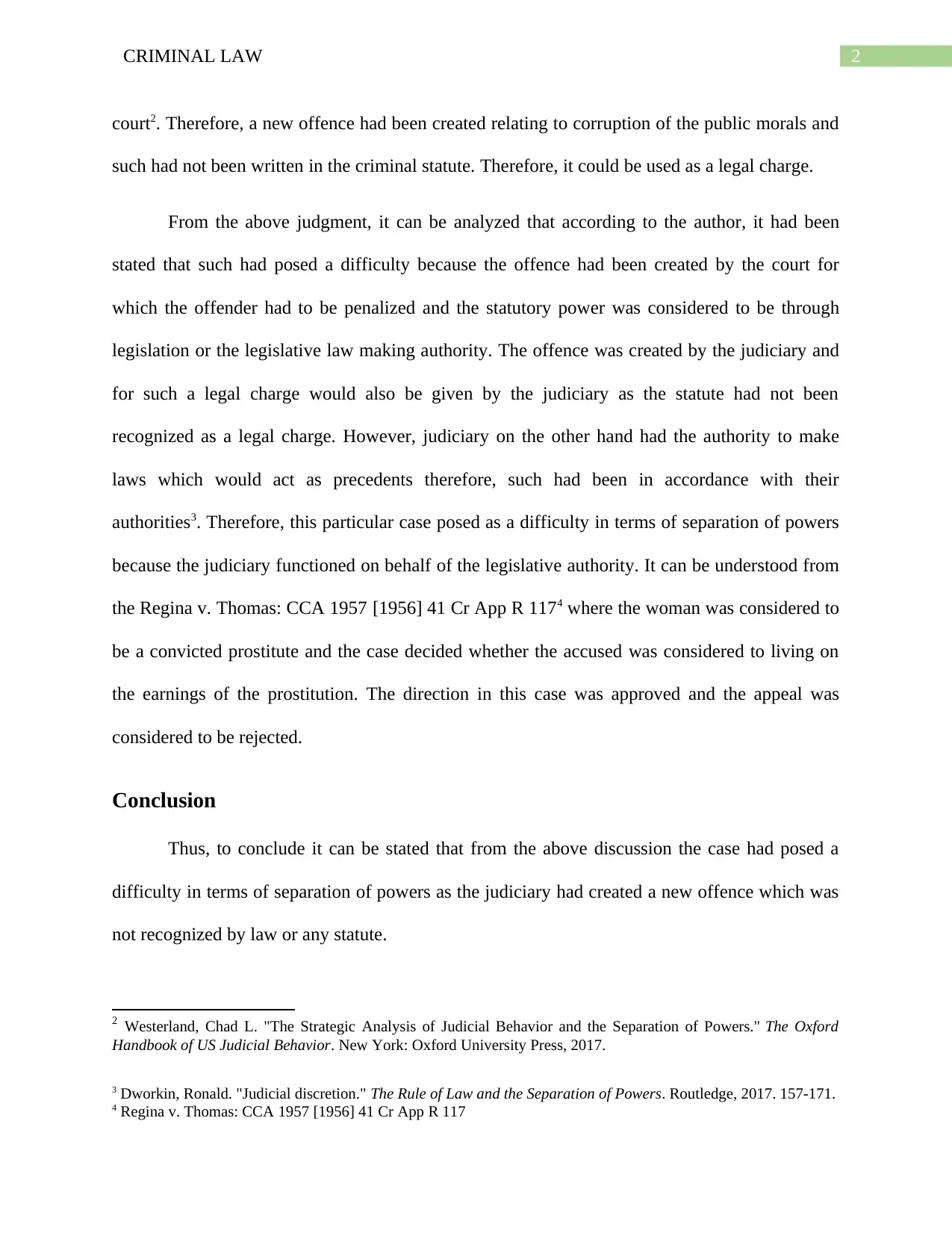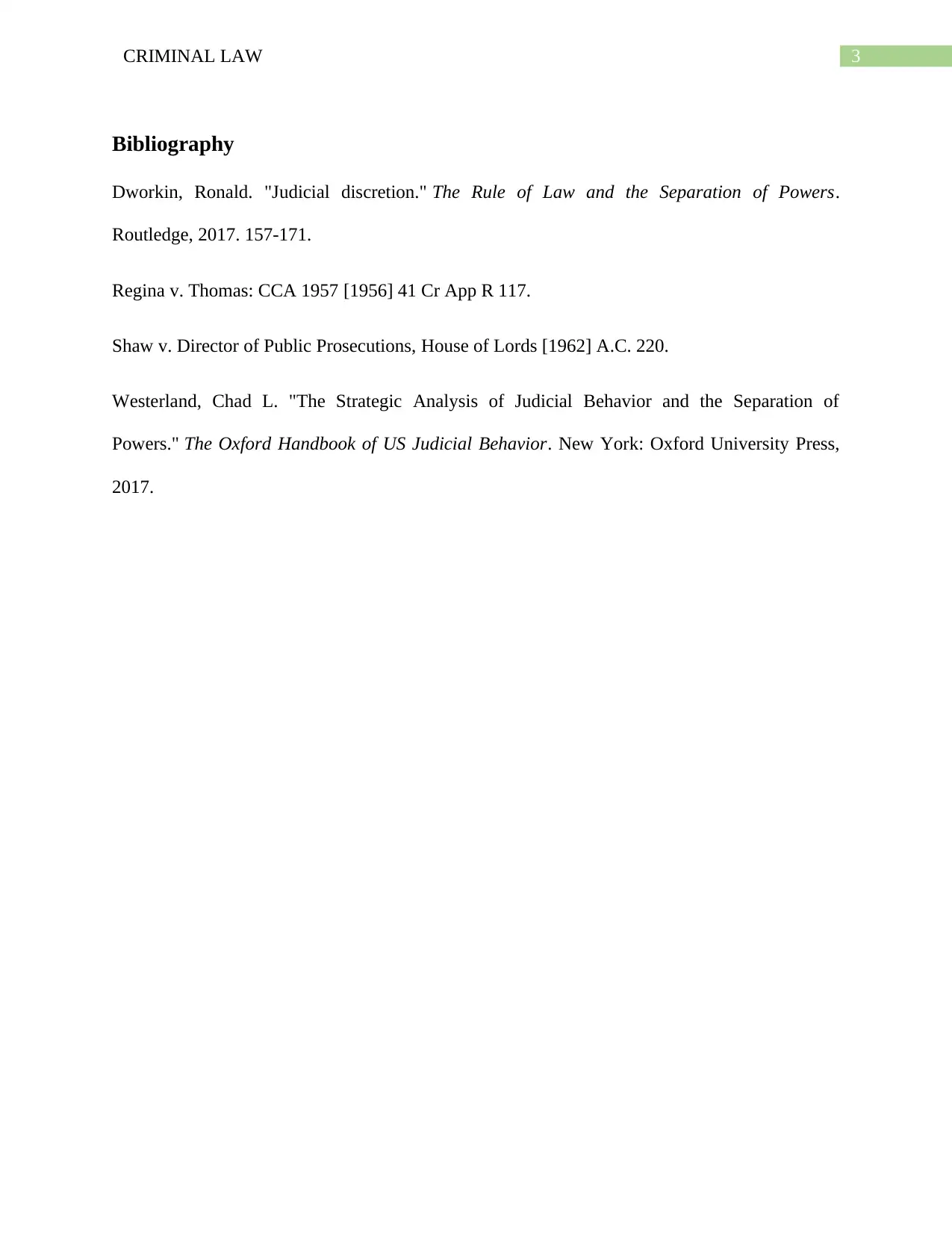Case Study: Shaw v. DPP - Criminal Law and Separation of Powers
VerifiedAdded on 2022/08/12
|4
|707
|18
Case Study
AI Summary
This case study analyzes the case of Shaw v. Director of Public Prosecutions, focusing on the issues of public morals and the separation of powers. The case involved the publication of a booklet containing names and addresses of prostitutes, leading to charges of conspiracy to corrupt public morals. The paper discusses the difficulties arising from the court creating an offense not explicitly recognized by law, posing a challenge to the separation of powers. The analysis highlights the judiciary's role in creating legal precedents and the implications of such actions on legislative authority, referencing Regina v. Thomas. The conclusion emphasizes the core difficulty: the judiciary creating a new offense, thereby blurring the lines of power established within the legal system. The paper highlights the importance of understanding the balance between judicial power and legislative authority in criminal law.
1 out of 4











![[object Object]](/_next/static/media/star-bottom.7253800d.svg)